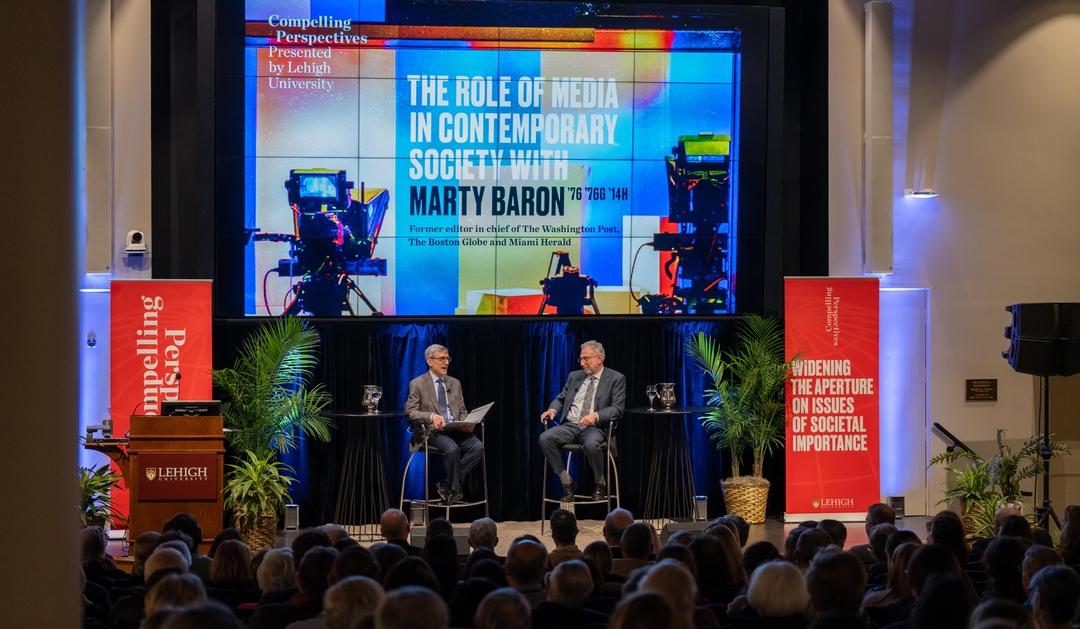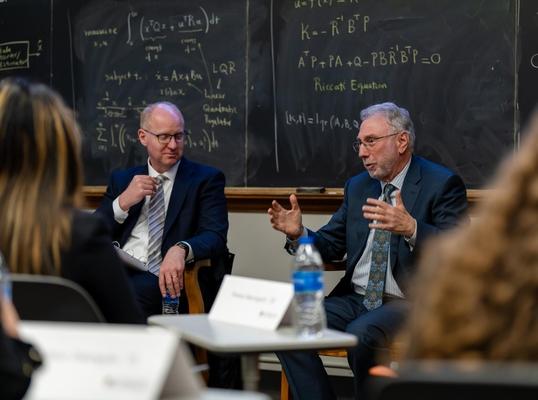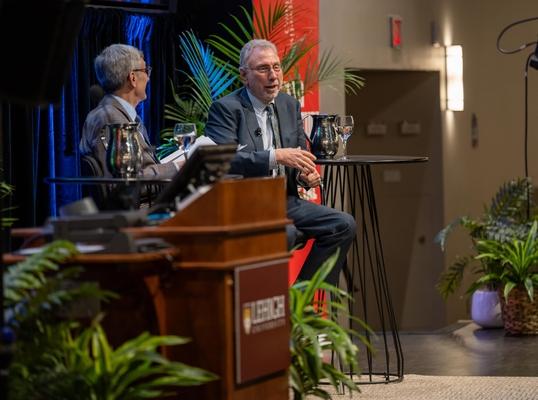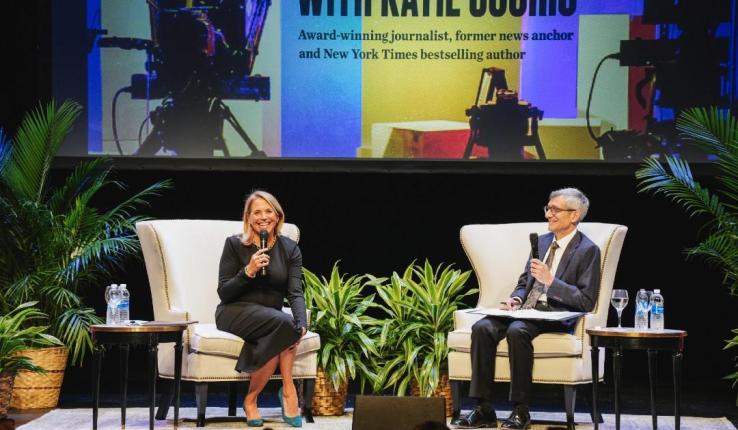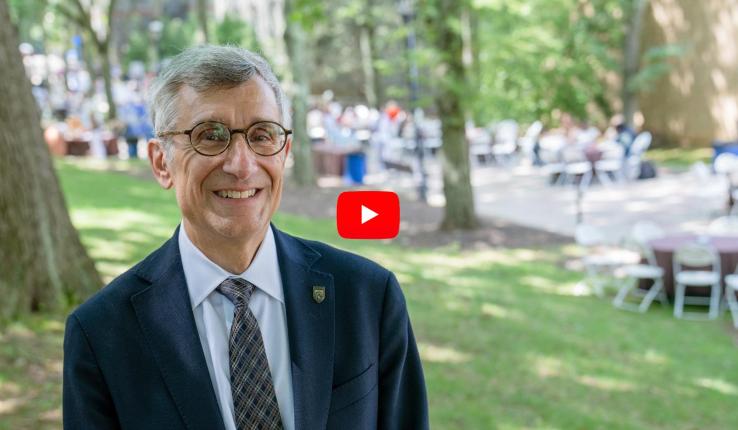“Most importantly, it gave voice to people who hadn’t had a voice, and it reminded journalists that we need to listen to people who don’t have power, because they often have very powerful things to say.”
It’s journalists’ responsibility to present the facts for the public, but it’s not easy, he said.
Journalists are not stenographers, Baron said. “Our job is to look behind the curtain and beneath the surface as to who did what and why.”
That is becoming increasingly difficult as reporters face hurdles that include skepticism from the general public, cable news networks that report opinions instead of facts, a proliferation of inaccurate information on social media, and an incoming U.S. president who is critical of the media.
Often people turn to sources to confirm their pre-existing worldview, Baron said.
“We no longer share a common set of facts. ‘Well, you have your facts, you have your truth. I have my truth.’ That’s a really difficult place to be because we can’t even agree,” Baron said.Helble noted that Baron has covered 12 presidential election cycles, including during his time as editor of Lehigh’s student newspaper, The Brown and White, when Jimmy Carter and Gerald Ford were running.
Helble asked how newsroom coverage and reporting of a presidential election changed over the years.
Baron said rhetoric has reached a level of hostility that’s become dehumanizing, the same kind of language, “authoritarians throughout history have used to describe enemies of the people.”
Baron believes this level of hostility could mean journalists face the threat of incarceration if they refuse to reveal sources or report negatively on certain political issues.
He believes reporters need to do a better job of understanding the general public and accurately and honestly reflecting the public’s concerns and political views. People need to see they are reflected in the stories being reported. Journalists also need to keep an open mind and not assume they know the answers to a story before it is thoroughly investigated, Baron said.
Baron has returned to campus numerous times, including to celebrate the 125th anniversary of The Brown and White. He was editor-in-chief of the student newspaper while at Lehigh.
Prior to the Compelling Perspectives program, Baron met with Brown and White staff members for a question-and-answer session moderated by Brett Ludwig, vice president of university communications and public affairs.
Baron also attended a second question-and-answer session with a group of students who represented various campus groups, majors and courses, including Student Senate, United Nations Partnership and those from the journalism, political science and English departments.
The second session was moderated by Provost Nathan Urban. The students asked questions about a range of topics, including how to establish credibility as a journalist; how to lead newsrooms and make difficult decisions as an editor; and how artificial intelligence (AI) is positively and negatively impacting journalism.
While Baron said AI can be a powerful tool for helping journalists streamline tasks, such as analyzing data, summarizing stories and selecting photos, it also presents great disadvantages when it comes to the creation and dissemination of fabricated content like images, videos and audio that audiences perceive to be truthful.
“We need to develop an infrastructure in our profession that detects this [fabricated content] as fast as we possibly can and addresses it through collaborations among media institutions and with academic specialists who have great expertise in that area,” Baron said.
While reflecting on other challenges facing journalists during his discussion with the students, Baron noted the importance of keeping transparency, fairness and authenticity at the forefront to earn the trust of readers.
Compelling Perspectives debuted in 2023. In September, veteran journalist Katie Couric kicked off this year’s series during an evening at Baker Hall in Zoellner Arts Center. An announcement about the next speaker, focusing on nontraditional media, is expected soon.
Story by Christina Tatu and Lauren Thein


